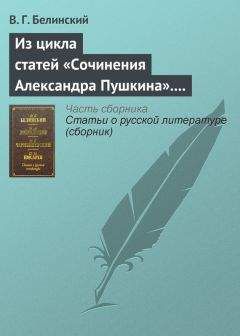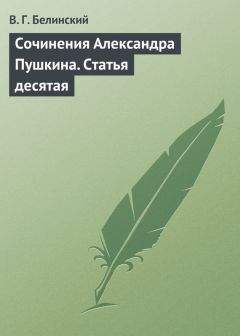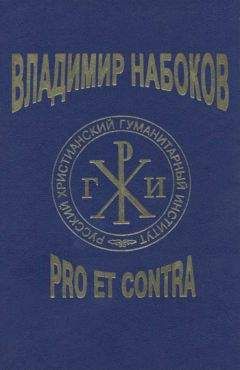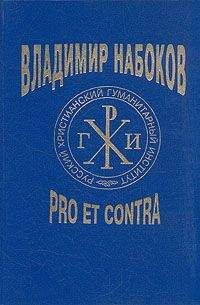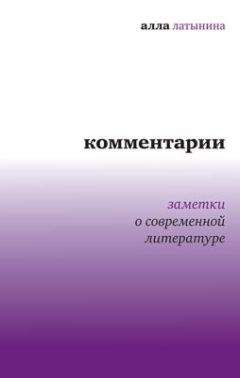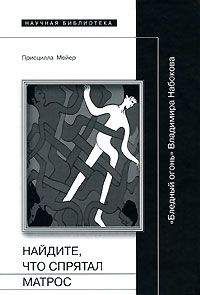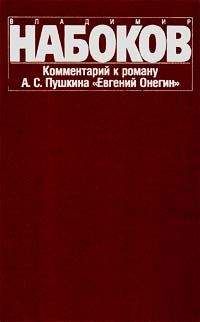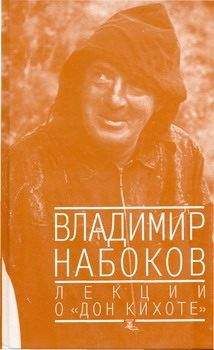Владимир Набоков - Комментарии к «Евгению Онегину» Александра Пушкина
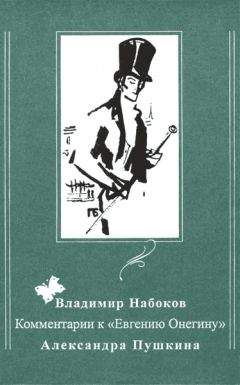
Скачивание начинается... Если скачивание не началось автоматически, пожалуйста нажмите на эту ссылку.
Жалоба
Напишите нам, и мы в срочном порядке примем меры.
Описание книги "Комментарии к «Евгению Онегину» Александра Пушкина"
Описание и краткое содержание "Комментарии к «Евгению Онегину» Александра Пушкина" читать бесплатно онлайн.
Комментарии В. В. Набокова освещают многообразие исторических, литературных и бытовых сторон романа. Книга является оригинальным произведением писателя в жанре научно-исторического комментария. Набоков обращается к «потаенным слоям» романа, прослеживает литературные влияния, связи «Евгения Онегина» с другими произведениями поэта, увлекательно повествует о тайнописи Пушкина.
Предназначена для широкого круга читателей и в первую очередь — для преподавателей и студентов гуманитарных вузов, а также для учителей и учащихся средней школы.
X
To love submissive, love he sang,and his song was as clear
as a naïve maid's thoughts,
4 as the sleep of an infant, as the moon
in the untroubled deserts of the sky,
goddess of mysteries and tender sighs.
He sang parting and sadness,
8 and a vague something, and the dim
remoteness, and romantic roses.
He sang those distant lands
where long into the bosom of the stillness
12 flowed his live tears.
He sang life's faded bloom
at not quite eighteen years of age.
XI
was able to appreciate his gifts,
he cared not for the banquets of the masters
4 of neighboring manors;
he fled their noisy concourse.
Their reasonable talk
of haymaking, of liquor,
8 of kennel, of their kin,
no doubt did not sparkle with feeling,
or with poetic fire,
or sharp wit, or intelligence,
12 or with the art of sociability;
but the talk of their sweet wives was
much less intelligent.
XII
was as a marriageable man received:
such is the country custom;
4 all for their daughters planned a match
with the half-Russian neighbor.
Whenever he drops in, at once the conversation
broaches a word, obliquely,
8 about the tedium of bachelor life;
the neighbor is invited to the samovar,
and Dunya pours the tea;
they whisper to her: “Dunya, mark!”
12 Then the guitar (that, too) is brought,
and she will start to shrill (good God!):
“Come to me in my golden castle!..”12
XIII
to bear the bonds of marriage,
wished cordially to strike up with Onegin
4 a close acquaintanceship.
They got together; wave and stone,
verse and prose, ice and flame,
were not so different from one another.
8 At first, because of mutual
disparity, they found each other dull;
then liked each other; then
met riding every day on horseback,
12 and soon became inseparable.
Thus people — I'm the first to own it —
out of do-nothingness are friends.
XIV
having destroyed all prejudices, we
deem all men naughts
4 and ourselves units.
We all aspire to be Napoleons;
for us the millions
of two-legged creatures are but tools;
8 feeling to us is weird and ludicrous.
More tolerant than many was Eugene,
though he, of course, knew men
and on the whole despised them;
12 but no rules are without exceptions:
some people he distinguished greatly
and, though estranged from it, respected feeling.
XV
the poet's fervid conversation,
and mind still vacillant in judgments,
4 and gaze eternally inspired —
all this was novel to Onegin;
the chilling word
on his lips he tried to restrain,
8 and thought: foolish of me
to interfere with his brief rapture;
without me just as well that time will come;
meanwhile let him live and believe
12 in the perfection of the world;
let us forgive the fever of young years
both its young ardor and young ravings.
XVI
discussions and led to reflection:
the pacts of bygone races,
4 the fruits of learning, Good and Evil,
and centuried prejudices,
and the grave's fateful mysteries,
destiny and life in their turn —
8 all was subjected to their judgment.
The poet in the heat of his contentions
recited, in a trance, meantime,
fragments of Nordic poems,
12 and lenient Eugene,
although he did not understand them much,
would dutifully listen to the youth.
XVII
the minds of my two anchorets.
Having escaped from their tumultuous power,
4 Onegin spoke of them
with an involuntary sigh of regret.
Happy who knew their agitations
and finally detached himself from them;
8 still happier who did not know them, who
cooled love with separation, enmity
with obloquy; sometimes
with friends and wife yawned, undisturbed
12 by jealous torment,
and the safe capital of forefathers
did not entrust to a perfidious deuce!
XVIII
of sage tranquillity,
when the flame of the passions has gone out
4 and laughable become to us
their waywardness
or surgings and belated echoes;
reduced to sense not without trouble,
8 sometimes we like to listen
to the tumultuous language of the passions
of others, and it stirs our heart;
exactly thus an old disabled soldier
12 does willingly bend an assiduous ear
to the yarns of young mustached braves,
[while he remains] forgotten in his shack.
XIX
cannot hide anything:
enmity, love, sadness, and joy
4 'tis ready to blab out.
Deemed invalided as to love,
with a grave air Onegin listened
as, loving the confession of the heart,
8 the poet his whole self expressed.
His trustful conscience
naïvely he laid bare.
Eugene learned without trouble
12 the youthful story of his love —
a tale abounding in emotions
long since not new to us.
XX
no longer in our years; as only
the mad soul of a poet
4 is still condemned to love:
always, and everywhere, one reverie,
one customary wish,
one customary woe!
8 Neither the cooling distance,
nor the long years of separation,
nor hours given to the Muses,
nor foreign beauties,
12 nor noise of merriments, nor studies,
had changed in him a soul
warmed by a virgin fire.
XXI
not having known yet torments of the heart,
he'd been a tender witness
4 of her infantine frolics.
He, in the shade of a protective park,
had shared her frolics,
and for these children wedding crowns
8 their fathers, who were friends and neighbors, destined.
In the backwoods, beneath a humble roof,
full of innocent charm,
she under the eyes of her parents
12 bloomed like a hidden lily of the valley
which is unknown in the dense grass
to butterflies or to the bee.
XXII
of youthful transports,
and the thought of her animated
4 his pipe's first moan.
Farewell, golden games! He
began to like thick groves,
seclusion, stillness, and the night,
8 and the stars, and the moon —
the moon, celestial lamp,
to which we dedicated
walks midst the evening darkness,
12 and tears, of secret pangs the solace...
But now we only see in her
a substitute for bleary lanterns.
XXIII
always as merry as the morn,
as naïve as a poet's life,
4 as winsome as love's kiss;
her eyes, as azure as the sky,
smile, flaxen locks,
movements, voice, light waist — everything
8 in Olga... but take any novel,
and you will surely find
her portrait; it is very sweet;
I liked it once myself,
12 but it has come to bore me beyond measure.
Let me, my reader,
take up the elder sister.
XXIV
was called Tatiana.13
For the first time a novel's tender pages
4 with such a name we willfully shall grace.
What of it? It is pleasing, sonorous,
but from it, I know, is inseparable
the memory of ancientry
8 or housemaids' quarters. We must all
admit that we have very little
taste even in our names
(to say nothing of verses);
12 enlightenment does not suit us,
and what we have derived from it
is affectation — nothing more.
XXV
Подписывайтесь на наши страницы в социальных сетях.
Будьте в курсе последних книжных новинок, комментируйте, обсуждайте. Мы ждём Вас!
Похожие книги на "Комментарии к «Евгению Онегину» Александра Пушкина"
Книги похожие на "Комментарии к «Евгению Онегину» Александра Пушкина" читать онлайн или скачать бесплатно полные версии.
Мы рекомендуем Вам зарегистрироваться либо войти на сайт под своим именем.
Отзывы о "Владимир Набоков - Комментарии к «Евгению Онегину» Александра Пушкина"
Отзывы читателей о книге "Комментарии к «Евгению Онегину» Александра Пушкина", комментарии и мнения людей о произведении.







